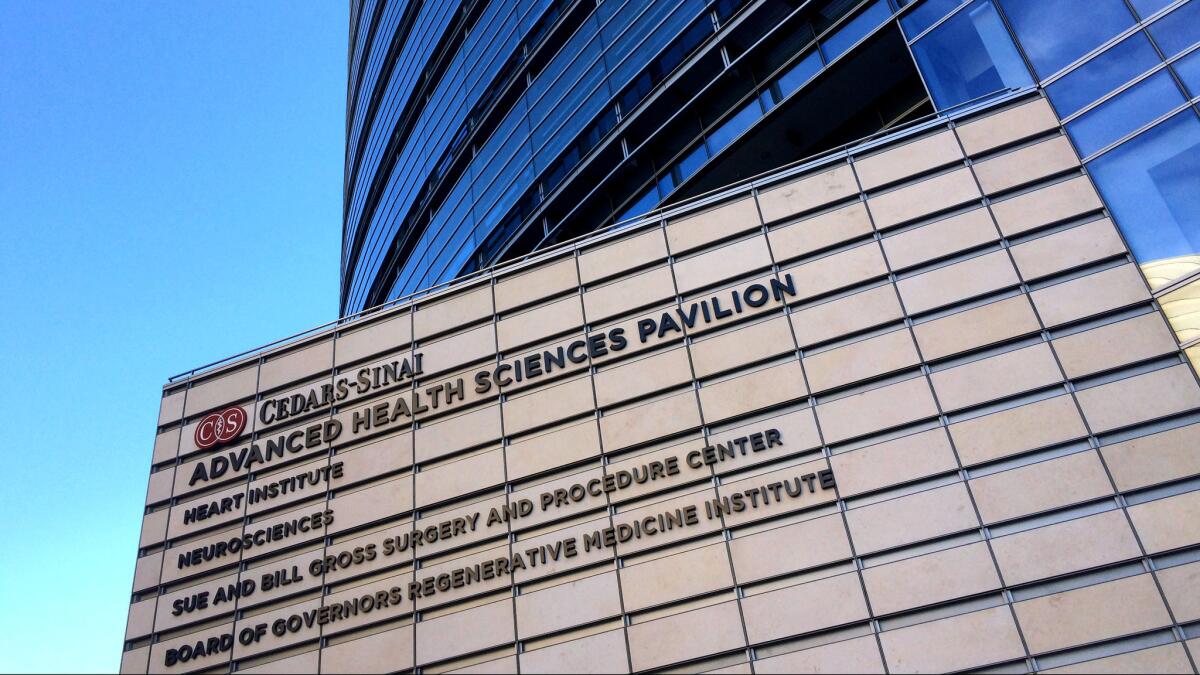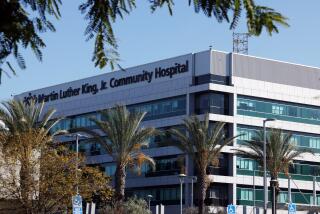Cedars-Sinai Medical Center tapped to fight Ebola

- Share via
The 2014 Ebola outbreak killed thousands of people worldwide and set off international panic about the spread of the highly contagious disease. In the U.S., it also exposed concerns about how prepared the health system is to fight infectious diseases.
As part of an effort to improve the nation’s emergency response to outbreaks, federal officials on Monday picked Cedars-Sinai Medical Center to be one of 10 special treatment centers nationwide for Ebola and similar diseases.
Cedars-Sinai and the California Public Health Department will share a $3.25-million grant from the U.S. Department of Health and Human Services to fill this role. The money comes from the $339.5 million in emergency funding to fight Ebola approved by Congress during the outbreak.
See the most-read stories this hour >>
The designation requires that Cedars-Sinai always be ready to treat Ebola patients and accept them with no more than eight hours’ notice. The hospital must be equipped to treat at least two Ebola patients at the same time, maintain isolation rooms for at least 10 patients and be able to handle infectious waste.
Officials said the hospital will mainly use the grant money, which runs through 2019, to train its Ebola response team and purchase equipment, such as protective gear for employees.
The hospital will be responsible for patients from California, Arizona, Hawaii, Nevada and the U.S. territories in the Pacific.
Among the nine hospitals chosen for other regions are Johns Hopkins Hospital in Baltimore, Massachusetts General Hospital in Boston and Emory University Hospital in Atlanta.
“With all of the regional facilities in place, our nation’s healthcare infrastructure will be better prepared for future outbreaks of Ebola and other special pathogens, especially those requiring a high level of biocontainment and specialized infection control,” said Dr. Nicole Lurie, the federal health department’s assistant secretary for preparedness and response. “This regional network of facilities capable of treating severe, highly infectious diseases is vital to better ensuring our nation’s health security.”
soumya.karlamangla@latimes.com
Follow @skarlamangla on Twitter for more health news.
MORE LOCAL NEWS
Man bound for L.A. Pride with guns, ammo and explosive chemicals is formally charged
Magnesium-fueled fire guts building, triggers explosions in Maywood
L.A. agrees to pay nearly $950,000 in two cases involving the homeless
More to Read
Sign up for Essential California
The most important California stories and recommendations in your inbox every morning.
You may occasionally receive promotional content from the Los Angeles Times.














